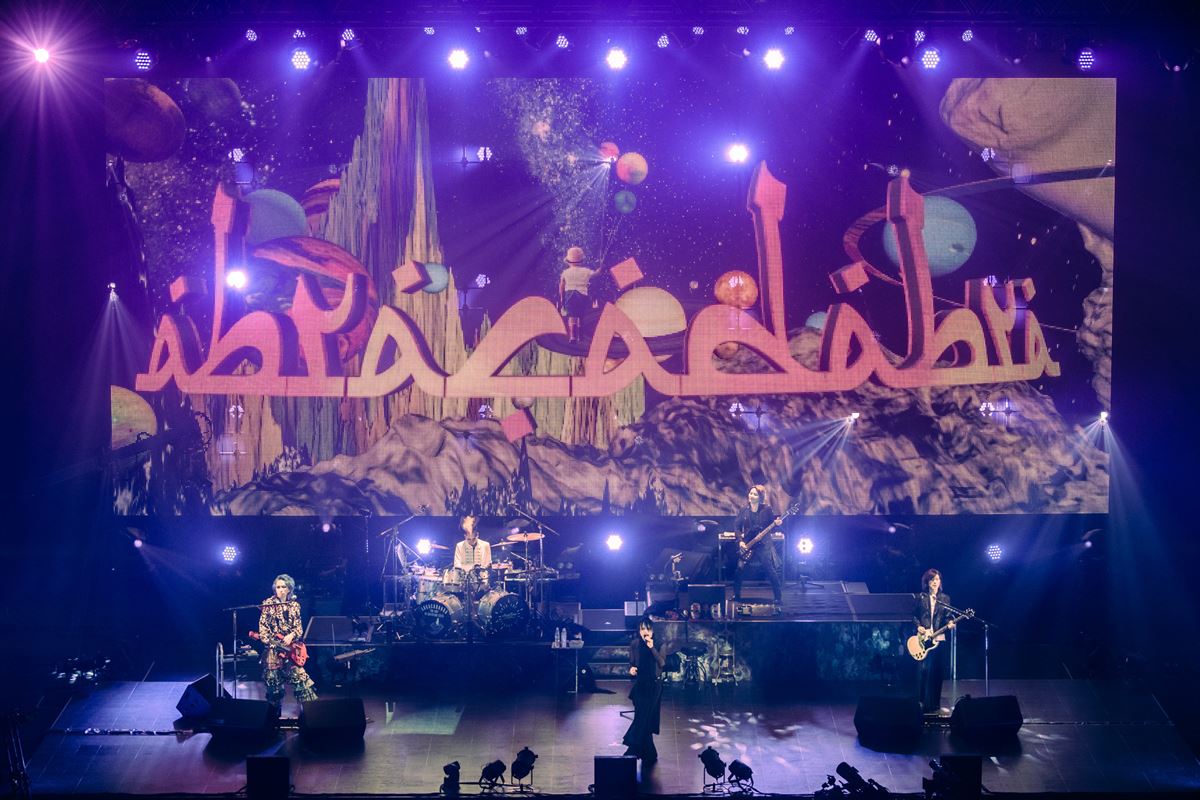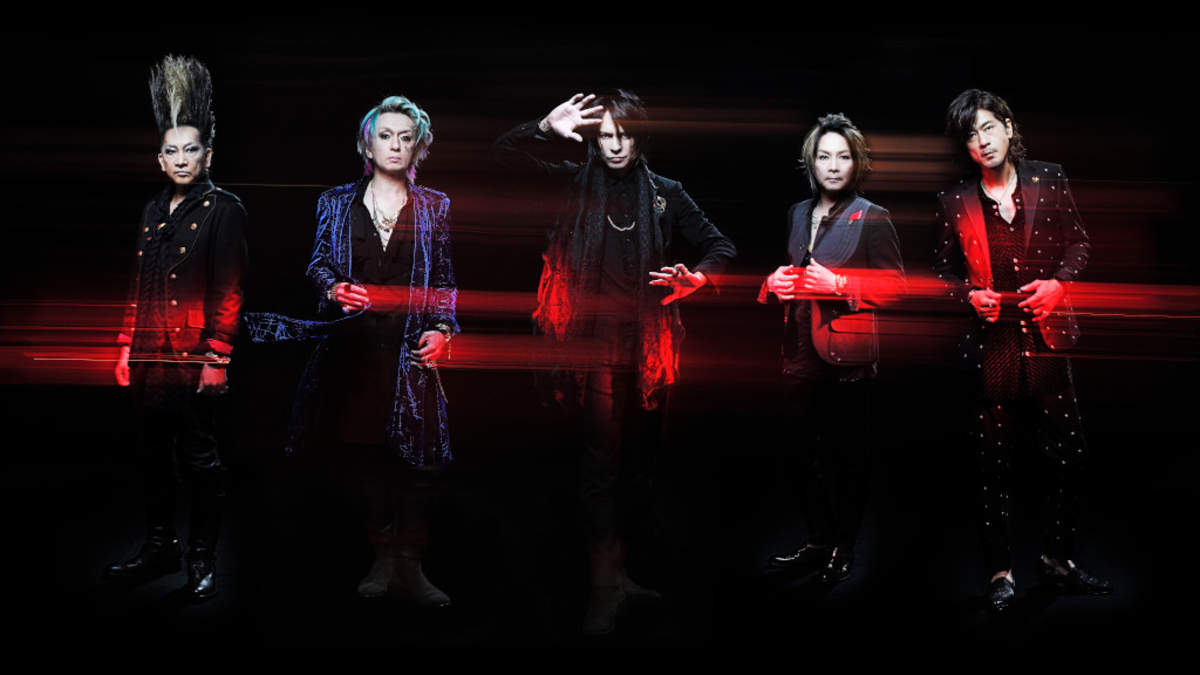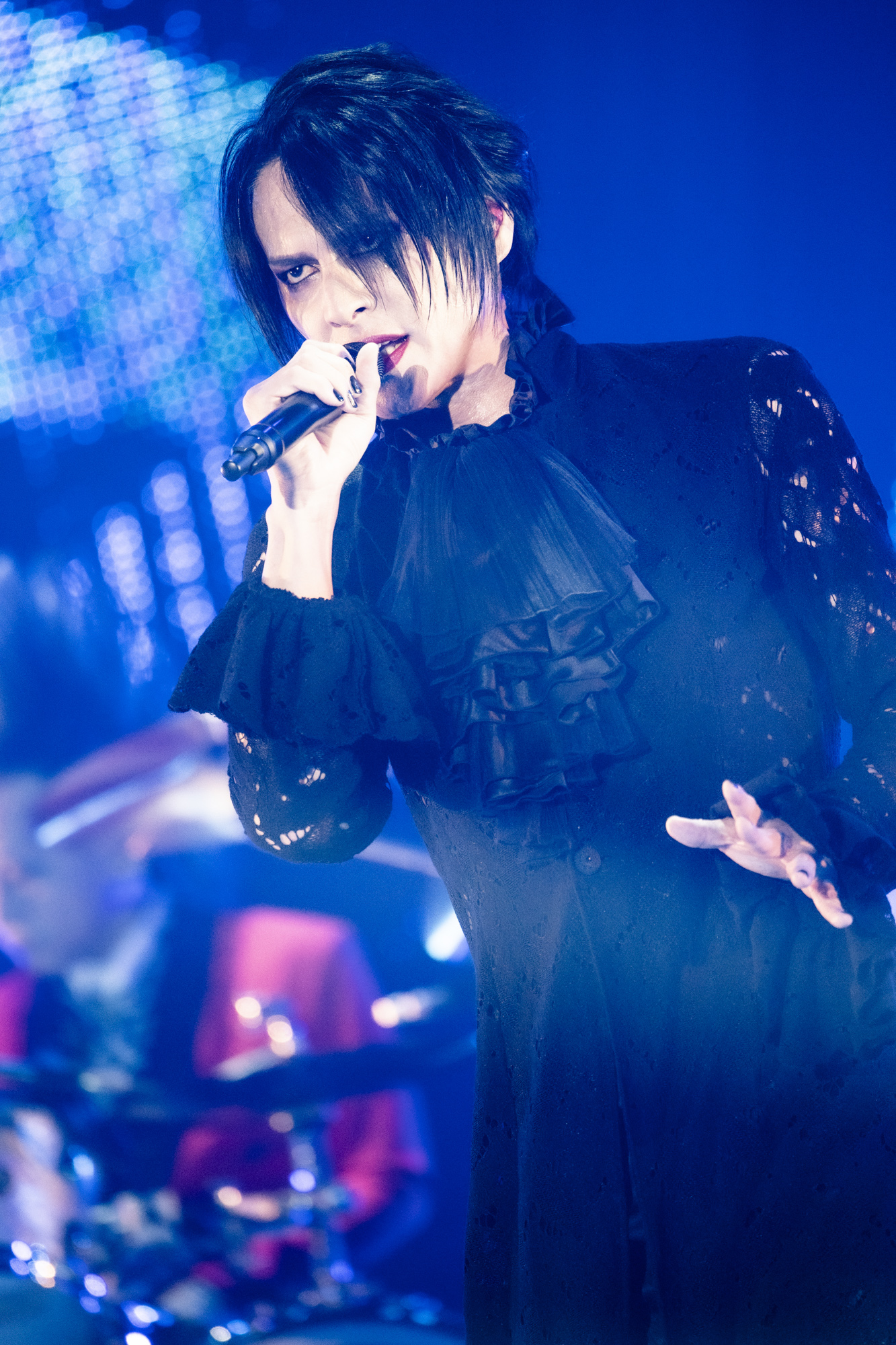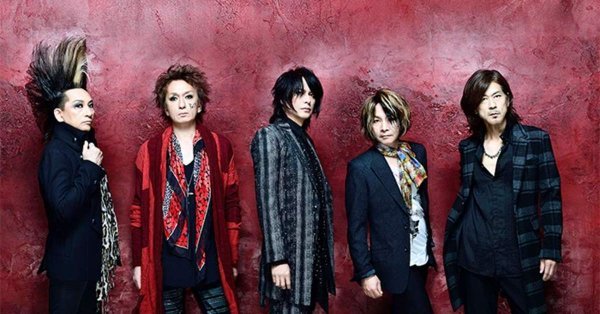
[Live Report] The Day In Question 2020
Pia
31 December 2020
Text = Okubo Yuka
Photos = Seitaro Tanaka
The parade of hope starts again with BUCK-TICK at Nippon Budokan
“Let’s go! Into the future”
【LIVE REPORT】
BUCK-TICK〈ABRACADABRA THE DAY IN QUESTION 2020〉
2020.12.29 at Nippon Budokan
BUCK-TICK conducted their annual December 29 performance at Nippon Budokan, Tokyo. Because they shifted venues to Yoyogi National Stadium First Gymnasium in 2019 in light of renovation works, this was their first performance in Nippon Budokan in 2 years. This is also the 21st time in a row that they have performed on this particular date. Nippon Budokan is most certainly the most fitting venue for this “annual” event to keep going.
This show was entitled “ABRACADABRA THE DAY IN QUESTION 2020”; a sign that this was to be a one-night-only special event where fans can enjoy both the world view of ABRACADABRA, their latest album which was released in September, and the special feeling that the annual year-end THE DAY IN QUESTION brings.
“Let’s go! Into the future. Let’s go!” Sakurai Atsushi’s (vocals) powerful declarations came after he sang the second song of the second encore, LOVE PARADE which was reminiscent of the closing of a show, and right before their last number, New World.
After BUCK-TICK released their album, ABRACADABRA, they were supposed to go on a national tour, but after taking the COVID-19 crisis into consideration, they held the film concert tour “TOUR2020 ABRACADABRA ON SCREEN” and added more dates to their original tour schedule. This tour was an experiment like no other. Although it is a film concert, the same sound systems and lighting as an actual live show were used to create a sense of realism for the audience. That along with the spirited performance by the band and an audience who kept up the applause as if it was an actual concert fulfilled the holy trinity that makes a live show, but despite it all, there was, inevitably, a loneliness that couldn’t be dispelled.
Following in the footsteps of “ABRACADABRA ON SCREEN”, this Nippon Budokan performance was to be the last in-audience show of the year 2020 with thorough COVID-19 prevention measures taken including the introduction of a face recognition system for entry, temperature checks, disinfection, and limiting the audience to about 5,000 people; half of the usual capacity. The event was also streamed live on the internet, responding to the wishes of fans around the world who could not make it to the venue.
This performance is the culmination of the band’s activities with the album, ABRACADABRA in 2020 which kicked off with their online no-audience live broadcast performance “ABRACADABRA ON THE NET”. I had thought that this show is the one that would be where the parade ends, but that thought was kicked to the curb by Sakurai’s earlier words. The band was welcoming everyone to this Budokan show, saying, “The parade goes on. Come, let’s go!” And at the same time, they pointed to the future which lay just beyond our outstretched hands. After the performance ended, the band announced a national tour for fall of 2021 plus the next December 29 show at Nippon Budokan. In a world that has yet to see light, they have once again brought us shining hope.
Peace signs held up, voiceless excitement turning to conveyed zeal
A little past the scheduled start time, a clip of the world of ABRACADABRA’s album jacket played, with a blue butterfly fluttering above crystals and diamonds, on the screen in front of the stage to a new arrangement of the SE, THEME OF B-T. When the tour title turned to dust and scattered away, Tsuki no Sabaku began. Visuals of a desert unfolded in front of the band, linking their performance with the oriental music. The clear tones which rang out with Sakurai’s occasional ringing of the tingsha bells felt as if they cleansed the air of the venue.
When the screen fell away to reveal the band members during the intro of the next song, Que Sera Sera Elegy, I could feel the excitement in the hall rise two to three times higher. The band truly was standing before our eyes. The voiceless excitement turned into an zeal which we managed to communicate to the band. Kemonotachi no Yoru YOW-ROW ver. was truly thrilling with an edgy, cutting beat and the union of Sakurai’s singing with Imai Hisashi’s (guitar) playing. And on the imposing beat set by Higuchi Yutaka (bass) and Yagami Toll (drums) in SOPHIA DREAM rode Sakurai and Imai’s free-floating twin vocals, leading the audience into a psychedelic world.
As if acting out the worlds of each song, the singing Sakurai’s performances were brilliant. The sight of him lying down on the floor lit in red during URAHARA-JUKU was breathtakingly beautiful, while the way he folded his arms, as if cradling a child while he swayed to the chilling intro plucked by Hoshino Hidehiko (guitar) was filled with compassion. Right after applying red lipstick himself, he began to sing Maimu Mime, dividing his performance between the man and woman characters with facial expressions and deliberate hand gestures in the backdrop of a drinking district scattered with titles of BUCK-TICK’s old songs on the signboards.
During the techno number, Villain performed with the twin vocals of Sakurai and Imai, the audience’s clapping became part of the rhythm, creating a sense of unity. The four-on-the-floor dance tune Datenshi YOW-ROW ver. evolved into an even more solid performance and turned Budokan into a dance hall, pumping up the intensity with Dance Tengoku which followed.
Imai’s solo performance of gentle harmonies led into MOONLIGHT ESCAPE. Sakurai’s unconstrained vocals sounded almost like a prayer. Then, they continued into the lively 8-beat song, Eureka. The audience held up peace signs together with Imai and Hoshino whenever they did it. This was the one scene that I wanted to see the most on the ABRACADABRA album tour. Sakurai walked from the right side of the stage to the left, watching this scene before him. And to culminate it all, Boukyaku. This ensemble of equal parts painful sorrow and kindly warmth along with the emotionally charged singing permeated deeply into my heart. Leaving these emotions lingering deep in the audience, the main set came to an end.
The most impressive thing in this show’s live re-enactment of a setlist which was pretty much the same as that of “ABRACADABRA ON SCREEN” was loud, thunderous round of endless applause which started up everytime a song ended. This was the audience conveying their feelings to the band in this situation where voices could not be used.
The reason why there were uncharacteristically long breaks between songs must be because the band members wanted to take in those feelings with their whole being. This reciprocal interaction between the performers and the audience is something that we only feel more acutely after having experienced no-audience live shows. A live show is built up on the enthusiasm and passion from these two sides. I believe the audience’s zeal must have been well conveyed to the band. Whenever a song ended, Sakurai would say, “Thank you.”
Sharing the desire to protect others, a space filled with kindness
After 15 minutes of intermission, the “THE DAY IN QUESTION” part of the show title begins. Welcomed by the impatiently-waiting applause that had started up 5 minutes before intermission ended, the band arrived on stage. It was at this moment that we found out that the words on the back of Yagami’s jacket said, “FUCK OFF!! COVID-19”.
During the future-illuminating FUTURE SONG-Mirai ga Tooru- and Luna Park, and even the mid-tempo Sekai wa Yami de Michiteiru sung against a starry sky, the band brought power and healing to the hearts that have become a little exhausted by the unstable situation. During ROMANCE, we were intoxicated by Sakurai’s dramatic performance from the start when he lit up the candles of a candelabra, to the end when he pierced his chest with his stick.
And before their next song, LOVE ME, this was what he said:
“The next song is about how you’ll be able to cherish the people you love when you cherish yourself. I would like to dedicate this to the medical professionals.”
The sight of the members putting their utmost respect into the song and music along with the audience waving their arms from side to side as best they could for those who couldn’t make it to the brightly lit hall is seared into my memory. Come to think of it, during the typically bustling pre-show wait and even enroute from the nearest train station to Budokan, the attendees observed good manners; they were quiet. Everyone shared the notion of thinking for and protecting others. This was a space that was filled with such kindness.
The second encore started on a high note with Alice in Wonder Underground. Receiving the neverending applause after LOVE PARADE, Sakurai spoke words of gratitude for the staff who helped to make this show a success and to the fans, he also thanked them saying, “Thank you for all your applause today. Your hands must be sore, aren’t they?”
There was also a moment when he eased the atmosphere in the hall by mumbling to himself, “I guess it must be boring to hear me talk only about serious matters. Shall I tell a dirty joke……”
“May the next year be a good one. I wish you all happiness,” he said with a deep bow, as if in prayer. Afterwhich, he said, “And now, let’s go! Into the future. Let’s go!”, leading into the last number, New World. “Cut through this infinite darkness and head into the future.” The powerful message that is embedded in this song turned into a light of hope and rained down on the audience.
It is said that since ancient times, firecrackers (爆竹 / bakuchiku), which are read the same way as BUCK-TICK (バクチク / bakuchiku), were set off to dispel plagues and evil spirits while ushering in good luck. ABRACADABRA, which BUCK-TICK played with great pomp and splendor at the end of the year to close of 2020 is a spell to ward off the plague. Therefore, we can say that BUCK-TICK’s existence is as good as hope itself.
When they announced that they would be holding a tour in autumn of 2021 along with a Nippon Budokan performance at the end of the show, the audience broke into another huge round applause. BUCK-TICK’s parade has started off once again from here as we head into 2021. I can’t help but hope for a future where we can all shout “PEACE” together in high spirits.
Setlist
1. 月の砂漠 (Tsuki no Sabaku)
2. ケセラセラ エレジー (Que Sera Sera Elegy)
3. 獣たちの夜 YOW-ROW ver. (Kemonotachi no Yoru)
4. SOPHIA DREAM
5. URAHARA-JUKU
6. 凍える (Kogoeru)
7. 舞夢マイム (Maimu Mime)
8. Villain
9. 堕天使 YOW-ROW ver. (Datenshi)
10. ダンス天国 (Dance Tengoku)
11. MOONLIGHT ESCAPE
12. ユリイカ (Eureka)
13. 忘却 (Boukyaku)
Encore
1. FUTURE SONG – 未来が通る – (FUTURE SONG -Mirai ga Tooru-)
2. Luna Park
3. 世界は闇で満ちている (Sekai wa Yami de Michiteiru)
4. ROMANCE
5. LOVE ME
1. Alice in Wonder Underground
2. LOVE PARADE
3. New World
Translation: Yoshiyuki
Source: Pia





























































































